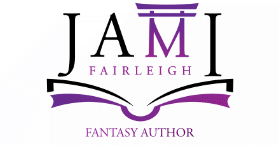
The Value of Twitter Pitch Events

Yesterday, I participated in #SFFPit, one of Twitter’s many pitch events, and found terrific value in it.
Pitch events are one of the benefits to joining Twitter’s #WritingCommunity. The purpose of most of these events is to catch the eye of a literary agent or acquiring editor. If the agent or editor “likes” your pitch, it means you’re invited to query them, which gives you an advantage over cold-querying.
However, even if you don’t catch the interest of an agent or an editor, taking part in pitch events can still help your writing career!

The Benefits of Pitch Events
Anyone who wants to traditionally publish their book can benefit from participating in a pitch event.
Market Research
Pitch events provide insight into what people are pitching and understanding of what stories agents are interested in representing. If you’ve been following a specific agent, you can garner information about their tastes and interests by examining the pitches they like.
Reading other people’s pitches helped me to better frame my story’s pitch. Pitch events can also help you gauge interest in your story. If your pitch generates feedback and interest, the comments may also help you hone your query package.
Networking and Exposure
Pitch events are a great place to make new connections in the #WritingCommunity. If I’m attracted to a pitch, I’ll typically follow the writer. During yesterday’s #SFFPit pitch event, I gained a number of followers too. Because you can search for the event’s hashtags for pitches like yours, pitch events provide an opportunity to meet, support, and interact with other writers who are writing similar stories.

Low Barrier Opportunities for Practice
The character limits imposed by Twitter’s application force help you distill your story’s essence and clarify its hook. This is great because having a concise summary is essential for your query package.
Plus, the more you talk about your book, the easier it gets. Pitch events are a great, low-cost way to practice. All the pitch events held on Twitter are free to join, requiring only a Twitter account. Well, a Twitter account and a pitch that fits within Twitter’s character limits.
Twitter Pitch Events
Here are a few pitch events to check out. Note, this is not an exhaustive list; new pitch events begin and end every year. Also, each pitch event has its own set of guidelines, so check out any event you’re interested in before jumping in. Most of the event websites provide a handy list of do’s and don’ts, the yearly schedule, and event-specific hashtags.
#DVpit – This event is intended to showcase the work of unagented, marginalized authors.
#PBPitch – This event is specifically for picture books and runs three times a year.
#PitDark – This event is for manuscripts with darker themes.
#PitMad – While the event organizers have cancelled #PitMad, you can still search its hashtag for research purposes.
#SFFpit – This is the Science Fiction and Fantasy focused pitch event I took part in yesterday.
Besides the pitch events above, there are several focused on improving your pitches, such as #MockPit and #PitLight. These are supportive events where you can practice and get feedback from the #WritingCommunity. The #RevPit pitch event is a contest where writers can win feedback and edits from professional editors.
Lessons Learned
To get traction in a pitch event on Twitter, you need to be an active participant. Yesterday, I only put together two pitches. I tweeted the first around 7:30 in the morning (Pacific Standard Time) and made it my pinned tweet. I read, retweeted, and responded to pitches, and followed/got followed by several other writers. The second pitch I scheduled for 1 pm using Twitter’s in-app scheduling feature, but my schedule didn’t allow me to pin the pitch or engage in the pitch event at all. The following graphs show the difference in engagement between the managed (top image) and scheduled (bottom image) pitches.

I didn’t announce my intentions to join #SFFpit ahead of time, so I wasn’t on anyone’s engagement lists. If I had, I think my tweets would have had more visibility. The more engagement a tweet gets, the more likely Twitter’s algorithm is to show your tweet.
Would that have helped garner agent notice? That’s hard to say. A pitch with a lot of interest may be more attractive to agents. But agents who attend pitch events may search for (or filter out) specific pitches using hashtags. Maybe both are true!
While my pitches didn’t get any attention from agents or editors, I’m still happy I joined the event. By participating, I created a couple of pitches I can use when talking about my book, and I met a bunch of middle grade writers I hadn’t seen before in the #WritingCommunity.
Have you taken part in a pitch event?
Header Photo by Edgar Moran on Unsplash
